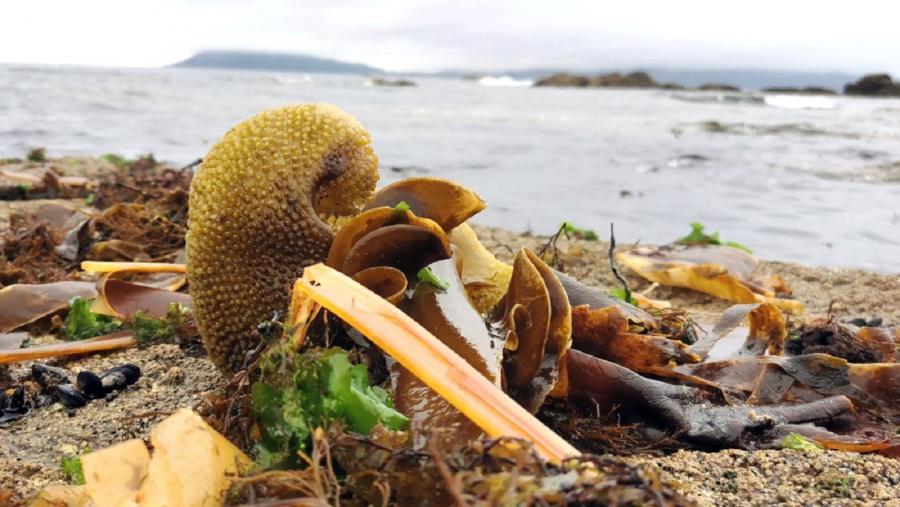Campus Terra is taking seaweed from the sea to the soil

When summer ends and temperatures start to drop, the beaches trade the towels, colourful umbrellas and sunbathers for another type of organism that also needs this star’s energy: algae.
The Agronomía group of the School of Engineering of the USC Campus Terra is putting its focus on this living organism through the Algaterra project. This R&D initiative has a funding of 146,371 euros from the European Agricultural Fund for Rural Development through the 2014-2020 Galician Rural Development Program, and is led by the company Porto-Muiños S.L.
Its main objective is to develop agricultural inputs with discarded seaweed by the food industry to improve organic farming and sustainable traditional production.
Just like algae have a lot of environmental benefits, collaboration is another aspect that is essential to this initiative, as it involves the Feuga (Fundación Empresa-Universidade Galega), the VIOR team of the Galician Biological Mission-CSIC and companies Adegas Terras de Asorei, Riveiro Ecológicos and Horta da Lousa.
In this sense, Algaterra was born with the goal of promoting the ecological use of algae waste that is discarded by the food industry and that can be used to develop new products. Thus, the project is using techniques such as algae dehydration or grinding, as well as other more complex ones, like the preparation of natural extracts to enrich the conditions and production of vegetable crops, potatoes or vines.
In recent years, this type of working system has considerably increased its surface, both in Galicia and in Spain. As a result of this evolution, there is a demand for new inputs that can contribute to crop production. The Algaterra project aims to meet these demands, always with the sustainable seal of Campus Terra (and of algae, of course!).
